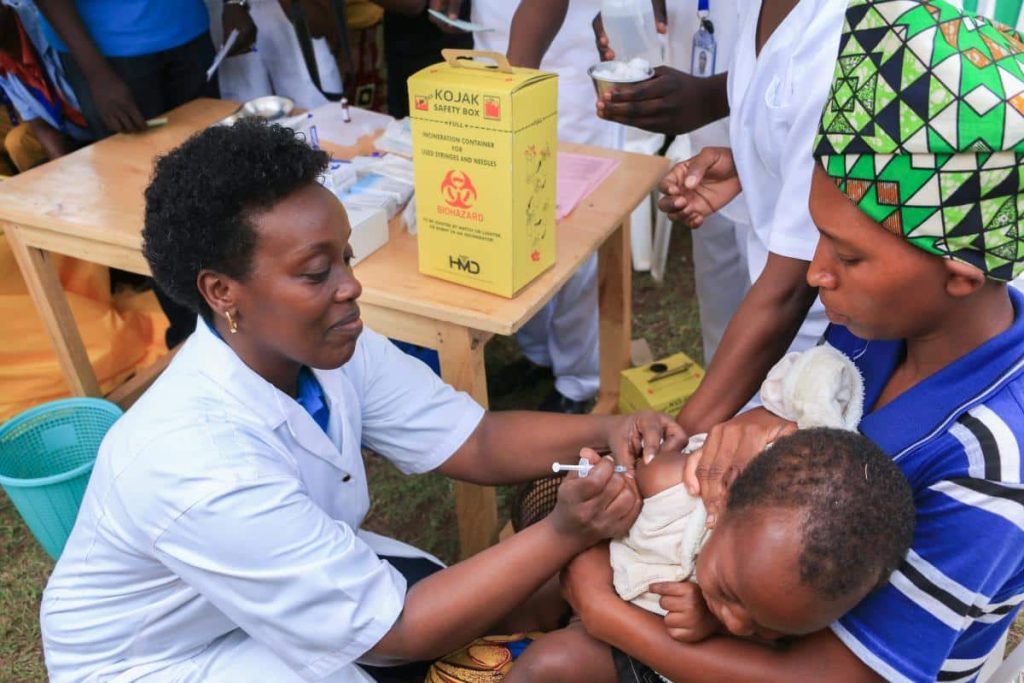German measles, also known as rubella, is often considered a mild childhood illness. However, it poses a severe threat to pregnant women and their developing fetuses. Rubella infection during pregnancy can lead to devastating birth defects, known as congenital rubella syndrome (CRS). Understanding the risks, symptoms, and preventive measures associated with German measles is crucial, especially for women of childbearing age.

German Measles: Understanding the Virus
German measles is caused by the rubella virus, a member of the Rubivirus genus in the Togaviridae family. It is a highly contagious disease that spreads through respiratory droplets produced when an infected person coughs or sneezes.
Symptoms of German Measles
The symptoms of German measles are often mild, especially in children. Some people may not experience any symptoms at all. However, common symptoms can include:
- Low-grade fever: Usually less than 102°F (39°C)
- Rash: A pink or red rash that starts on the face and spreads to the body and limbs.
- Swollen lymph nodes: Especially those behind the ears and in the neck.
- Runny nose
- Headache
- Muscle aches
- Joint pain
- Conjunctivitis (red, irritated eyes)
German Measles in Pregnancy: The Risks of Congenital Rubella Syndrome (CRS)
The most serious consequence of German measles occurs when a pregnant woman contracts the infection, especially during the first trimester. The rubella virus can cross the placenta and infect the developing fetus, leading to CRS.
CRS can cause a wide range of severe birth defects, including:
- Hearing loss
- Vision problems (cataracts, glaucoma)
- Heart defects
- Intellectual disability
- Liver and spleen damage
- Growth retardation
- Miscarriage or stillbirth
German Measles Prevention: The Importance of Vaccination
The most effective way to prevent German measles is through vaccination. The MMR (measles, mumps, rubella) vaccine is a safe and highly effective vaccine that protects against all three diseases.
Vaccination recommendations:
- Children: Two doses of the MMR vaccine are typically recommended: the first dose at 12-15 months of age and the second dose at 4-6 years of age.
- Women of childbearing age: Women who are not immune to rubella should receive the MMR vaccine before they become pregnant.
MedicW Recommendations: Supporting Public Health with Essential Supplies:
- MMR Vaccine Components: MedicW can provide essential components used in MMR vaccine manufacturing, helping ensure a consistent vaccine supply.
- Sampling Swabs: For collecting throat swabs or blood samples for laboratory testing and confirmation of German measles infection.
- Syringes: Used for vaccine administration and blood collection for rubella testing.
- Protective Apparel: For healthcare professionals who interact with potentially infected individuals.
- Diagnostic Kits: MedicW can potentially develop and supply diagnostic kits for the rapid detection of rubella antibodies.
German Measles: Frequently Asked Questions
1. How contagious is German measles?
Answer: German measles is highly contagious. The virus spreads easily through coughing and sneezing.
2. How is German measles diagnosed?
Answer: A blood test can detect the presence of rubella antibodies, confirming the diagnosis.
3. Can I get German measles if I’ve been vaccinated?
Answer: The MMR vaccine is very effective, and the vast majority of people who are vaccinated are protected from German measles. However, in rare cases, vaccinated individuals may still get a mild form of the disease.
4. Is there a treatment for German measles?
Answer: There is no specific antiviral treatment for German measles. The focus of treatment is on relieving symptoms, such as fever and discomfort.
5. What should I do if I think I’ve been exposed to German measles during pregnancy?
Answer: Contact your doctor immediately. They can perform blood tests to determine if you are immune to rubella or if you have been infected.
6. Is there a risk of getting German measles from the MMR vaccine?
Answer: The MMR vaccine contains a weakened form of the rubella virus that cannot cause CRS. However, it is not recommended for pregnant women.
German Measles: Conclusion
German Measles, or rubella, poses a serious health risk, primarily to pregnant women and their unborn babies. Vaccination is the cornerstone of preventing rubella and protecting future generations from the devastating effects of CRS. MedicW plays a vital role by supplying medical consumables, from vaccine components to diagnostic tools, to empower healthcare providers in the fight against German measles and support the achievement of widespread rubella immunity.
We strongly advocate for:
- Widespread MMR vaccination.
- Early rubella screening for women of childbearing age.
- Prompt medical consultation for suspected rubella exposure, especially during pregnancy.
By raising awareness, promoting vaccination, and ensuring access to quality medical supplies, we can eliminate the threat of German measles and safeguard the health of mothers and their children.
MedicW is committed to being your trusted partner in providing high-quality medical consumables. Explore our comprehensive range of products and discover how we can support your healthcare needs. Visit us at medicw.com or contact our team at [email protected].
Link to this article: German Measles (Rubella): A Threat to Unborn Babies
